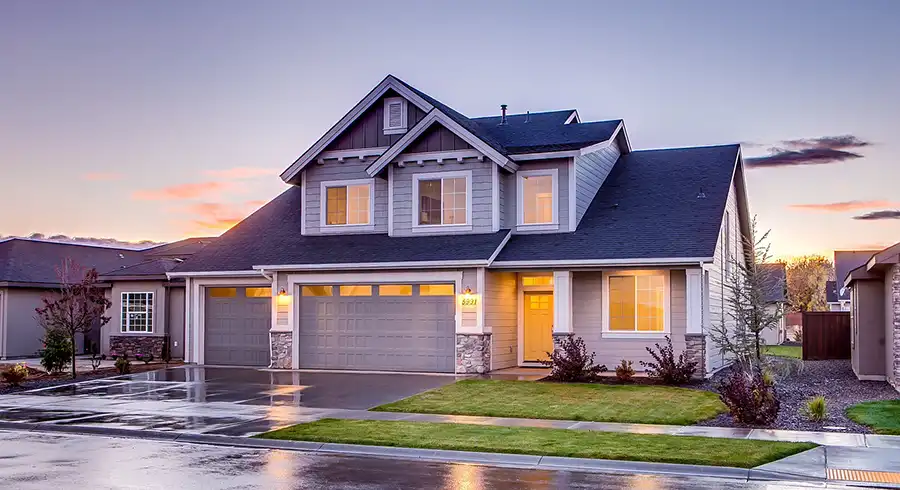
For homeowners and residential property investors, keeping track of value is an important part of effective property management. A home valuation in Perth serves as the most reliable method of finding market value.
A home valuation is a report written by a qualified valuer. The report is legally accepted as definitive proof of value and can be used as an official document in a range of different circumstances.
For best results, valuers need to have the proper credentials. Only Certified Practising Valuers (CPV) registered with the Australian Property Institute (API) can prepare official home valuation reports.
The last thing you want as a homeowner is to get a valuation report that comes back lower than you expected. So what do valuers look for when preparing valuation reports? Learning about the different factors that impact market value can help you properly prepare.
What do valuers look for?
A valuer is an experienced expert who is well-versed in the factors that affect a residential property’s value. As localised specialists, valuers will go through hundreds of internal and external factors to guarantee accurate assessments.
Valuers are usually adept at assessing commercial, industrial, residential and rural properties. The type of property will impact the valuers’ process.
They understand exactly what to look for in a property valuation. A few of the main considerations for professional valuers are:
Location
A fundamental contributing factor to a home’s value is the location. A valuer will review how close the property is to key amenities such as schools, public transport, hospitals, shopping centres, and restaurants.
The neighbourhood’s reputation, safety standards, visual appeal, and employment rate can also affect the desirability of a location.
The size and layout
Naturally, the size and layout of a property will impact its value. A CPV will review a number of factors relating to size and space.
The dimensions of the property and land, the available floor and storage space, the number of rooms (bedrooms and bathrooms are crucial), the size of the yard and garden, and the general design of the property all play a role. A home designed for comfort and space will be worth more than a compact one.
The condition of the building
A well-maintained building is essential for getting a positive property valuation report. A value will carefully examine the quality of the materials, the structural integrity, upgrades or additions and the general standard of maintenance.
If a building has been well-cared for and shows little signs of deterioration, it does wonders for the final value.
Age and rate of depreciation
If a property has been around for decades and its age is beginning to show, it can hurt value. Properties can depreciate due to outdated features, lack of maintenance, natural wear and tear, or due to external factors.
Existing market conditions
Localised property specialists are experts in the real estate and housing market. The state of the market is absolutely crucial to the final value of a home.
The market is driven by supply and demand, sales trends, inflation, market fluctuations, and a range of other factors.
Zoning laws
The zoning laws and planning restrictions of a property or piece of land have a direct impact on its value.
As the zoning regulations affect the potential for future development, valuers will carefully consider the restrictions in place.
Environmental risks
Any relevant environmental risks will affect the final value of a property. If there are potential or existing environmental issues, the value of the property will be affected.
Flood zones and pollution, as well as chemicals such as lead, asbestos, carbon monoxide, radon, and a range of other harmful toxins, can all negatively impact a property’s value.
The home valuation process
The first step of a home valuation process usually involves a physical inspection of a property. Not all valuations involve physical inspections, but for precise home valuations, inspections can be essential.
A valuer will take measurements and photographs when preparing the report. They will review the dimensions of the property and carefully go through several internal and external factors.
A valuer will need access to every room in the house. They will identify any issues such as damaged pipes or faulty electrical work as well as take note of any notable features.
The inspection process of a standard home can last somewhere between 15 - 30 minutes. CPVs will then take a few days to do the necessary calculations, analyse property data, and prepare the final report.
You can expect to wait around 2-7 days for the final valuation report; speak to your assigned valuer to get a clearer idea of when the final document will be ready.
Summary
A home valuation is a great way to find the market value of your residential property. CPVs are qualified specialists with a deep understanding of the housing market and how to assess property value.
Going over what valuers look for in a valuation can help you prepare and get the most out of the report. An unexpectedly low valuation is not the desired outcome for anyone.
CPVs go through several different factors. Location, size, design, condition, market trends, environmental risks, and more all have an impact.
A home valuation involves a rigorous inspection process where the valuer will check measurements and take photographs. The inspection can take 15 minutes to a couple of hours, but it can take up to 7 days for the report to be complete.
For more information on what valuers look for when preparing valuation reports, don’t hesitate to give us a call. As industry experts, we’re always ready and waiting to assist.






